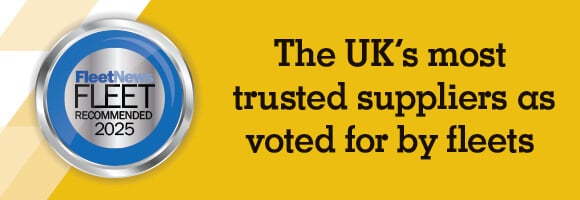Pre-tax profits for vehicle leasing company Lex Autolease have plummeted by more than £400 million, according to newly-filed accounts.
The Lloyds Banking Group company posted a pre-tax profit of £124.4m for 2023, a dramatic fall on the £544.2m reported for 2022.
The fall in profits came despite Lex Autolease’s revenue increasing over the same 12 months from £2 billion to £2.2bn as new vehicle supply improved.
Blame, in part, has been levelled at lower profits on the disposal of vehicles “due to market conditions” and increased interest expense on its borrowings.
In 2023, almost half (46%) of new vehicle orders were for electric vehicles (EVs) – a similar proportion to the 47% reported in 2022.
The company says that one of the key drivers of performance are the fluctuations in residual values (RVs) of fleet vehicles.
However, it said: “Significant price reductions have been seen through 2023 as significant volumes of battery electric vehicles (BEVs) have come into the market for the first time.”
Since September 2022, BEVs have seen their used values decrease by more than 60%, according to Cap HPI, which has resulted in fleets facing rising rentals as leasing losses mount on used plug-in vehicles.
Lex Autolease says that it expects more customers to enter into informal extensions on leased product due to the increases in rentals being seen in the market.
The 77% year-on-year fall in profits came after an impressive 26% increase (from £433m to £544m) reported for 2022, when the leasing industry enjoyed record returns due to the impact of the global semiconductor shortage restricting supply across the auto industry, increasing the demand for, and value of, used vehicles.
Industry trade body, the British Vehicle Rental and Leasing Association (BVLRA), has said that the UK’s vehicle leasing and rental industry is facing an “existential threat” due to the collapse in used BEV values.
Lex Autolease is the latest in a long line of leasing companies reporting profits being impacted by the performance of second hand EVs.
In February, vehicle leasing giant Ayvens reported a 22.2% drop in pre-tax profits year-on-year, down from £1.42bn to £1.1bn.
Figures suggested a £341m year-on-year decline in used car sales, with Ayvens blaming falls in RVs.
Ayvens, which is majority owned by French bank Societe Generale, has a global fleet of 3.4 million cars, of which about 10% are EVs.
The company says it is now leasing EVs for longer than combustion-engine cars to reduce resale risks.
It has also started to lease EVs out once or twice more “at a more affordable rate” and keep them in its portfolio longer, possibly up to eight years, he said.
Zenith’s annual financial results, for the year ending March 31, 2024, published last month (July), also reported its profits had been impacted by used EV values.
Turnover was £788.4m, up 16.1% year-on-year, from £679m the previous year. However, adjusted gross profit was £134.4m, down 8.5% year-on-year, from £147m.
The figures also revealed that its average termination profit per vehicle was down 40% year-on-year as a result of weak used vehicle prices both for BEV and ICE vehicles.
It is a world away from the record-breaking pre-tax profits reported by the top 50 vehicle leasing companies in last year’s FN50.
Pre-tax profits for the FN50 exceeded £2bn for the first time, thanks to record-breaking used car prices driven by the semiconductor shortage.
Collectively, the FN50 reported pre-tax profits were up £500m on the £1.5bn achieved in 2022 and more than three times the £625m reported in 2021.
Highlighting how record-breaking RVs drove the 36% rise in profits, revenues for the FN50 had only increased by 4%, year-on-year.





















Login to comment
Comments
No comments have been made yet.